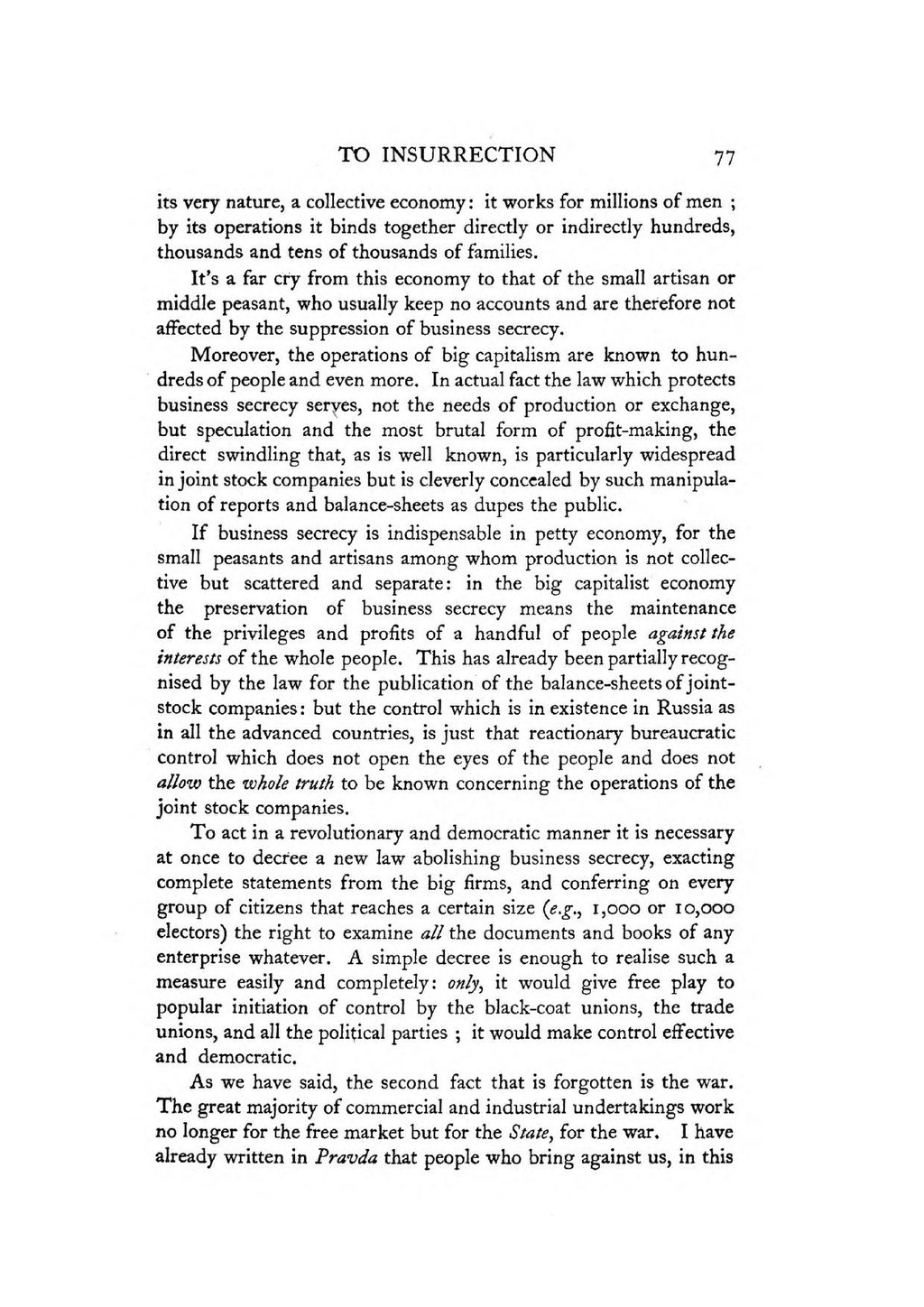its very nature, a collective economy: it works for millions of men; by its operations it binds together directly or indirectly hundreds, thousands and tens of thousands of families.
It's a far cry from this economy to that of the small artisan or middle peasant, who usually keep no accounts and are therefore not affected by the suppression of business secrecy.
Moreover, the operations of big capitalism are known to hundreds of people and even more. In actual fact the law which protects business secrecy serves, not the needs of production or exchange, but speculation and the most brutal form of profit-making, the direct swindling that, as is well known, is particularly widespread in joint stock companies but is cleverly concealed by such manipulation of reports and balance-sheets as dupes the public.
If business secrecy is indispensable in petty economy, for the small peasants and artisans among whom production is not collective but scattered and separate: in the big capitalist economy the preservation of business secrecy means the maintenance of the privileges and profits of a handful of people against the interests of the whole people. This has already been partially recognised by the law for the publication of the balance-sheets of joint-stock companies: but the control which is in existence in Russia as in all the advanced countries, is just that reactionary bureaucratic control which does not open the eyes of the people and does not allow the whole truth to be known concerning the operations of the joint stock companies.
To act in a revolutionary and democratic manner it is necessary at once to decree a new law abolishing business secrecy, exacting complete statements from the big firms, and conferring on every group of citizens that reaches a certain size (e.g., 1,000 or 10,000 electors) the right to examine all the documents and books of any enterprise whatever. A simple decree is enough to realise such a measure easily and completely: only, it would give free play to popular initiation of control by the black-coat unions, the trade unions, and all the political parties; it would make control effective and democratic.
As we have said, the second fact that is forgotten is the war. The great majority of commercial and industrial undertakings work no longer for the free market but for the State, for the war. I have already written in Pravda that people who bring against us, in this
